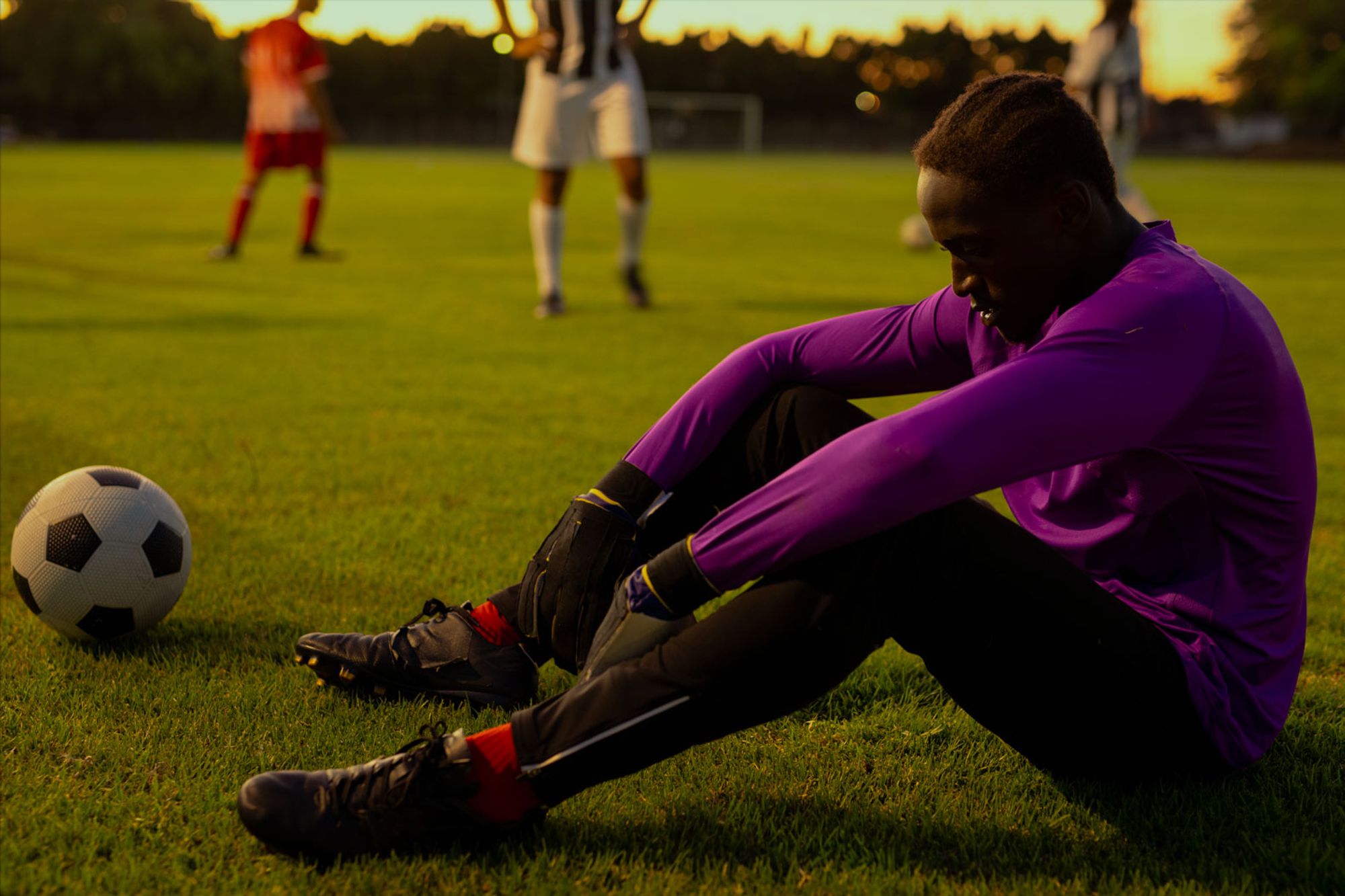
Essential recovery strategies for goalkeepers: optimise your post-match recovery
Antoine Roex, Keeper In Motion – 29 August 2024
Discover the best recovery techniques for goalkeepers after intense training sessions and matches. This article explores proven methods such as cryotherapy, targeted stretching, post-exercise nutrition and sleep management to help goalkeepers recover faster and improve their overall performance. Learn how to incorporate these practices into your routine to maintain optimal form throughout the season.
Understanding Goalkeeper Physiology and the Impact of Intense Exercise
The unique role of goalkeepers in football requires not only explosive endurance and power, but also targeted recovery to manage the physical stresses imposed by repetitive and intense movements such as diving, jumping and fast running. These activities can lead to muscle micro-tears and inflammation. To counteract these effects, goalkeepers need to adopt recovery practices that include a protein-rich diet to repair muscles, and adequate hydration to counteract dehydration due to sweating, particularly in hot climates or during intense matches.
Active and nutritional recovery techniques
After training or matches, active recovery techniques such as stretching, yoga or light cardio activities (cycling, swimming) help to maintain blood circulation and reduce muscle stiffness. These practices are complemented by strategic nutrition in which carbohydrates and proteins play a crucial role in replenishing energy reserves and repairing muscles. Goalkeepers must also take care to replenish lost fluids and rebalance electrolytes with appropriate sports drinks, especially after exertion in high temperatures.
Mental recovery and stress management
As well as physical recovery, mental recovery techniques are essential for managing the stress and anxiety inherent in being the last line of defence. Techniques such as meditation, guided relaxation and deep breathing exercises help to reduce stress levels and improve concentration and responsiveness on the pitch. Goalkeepers also benefit from positively visualising their future performance to boost self-confidence and maintain a positive mental attitude in the face of challenges.
Goalkeeper-specific recovery
Goalkeepers can also benefit from specific methods such as ice baths or cold showers to speed up muscle recovery and reduce inflammation. Using foam rollers and other self-massage tools can help relax muscles and improve mobility. Finally, regular massages, although some studies dispute their effectiveness on muscle recovery, remain popular for their ability to deeply relax and reduce the perception of pain.
These recovery strategies, combining physical and mental approaches and incorporating techniques specific to the physiology of goalkeepers, are essential for maximising performance and prolonging the careers of athletes in this demanding position.
References :
- Revamping Your Game: Recovery Tips for Soccer Goalkeepers – Real Soccer Blog
- Goalkeeper’s Guide: Quick Tips for Effective Recovery after a Save – Goral Soccer
- Becoming Fit: A Soccer Goalkeeper’s Fitness Regime – Real Soccer Blog
- Post-game recovery techniques in modern football/soccer – Micro Training
